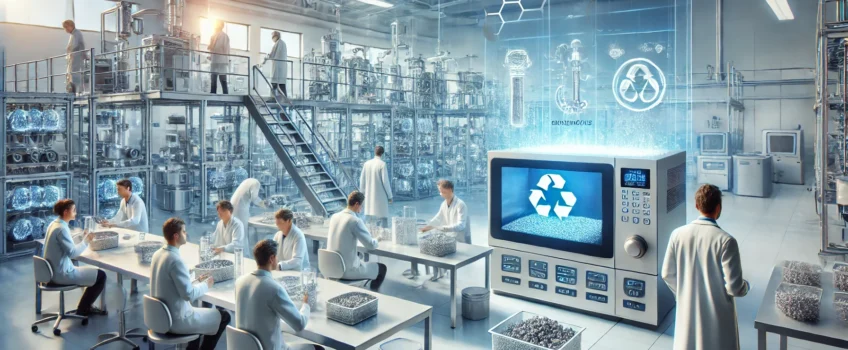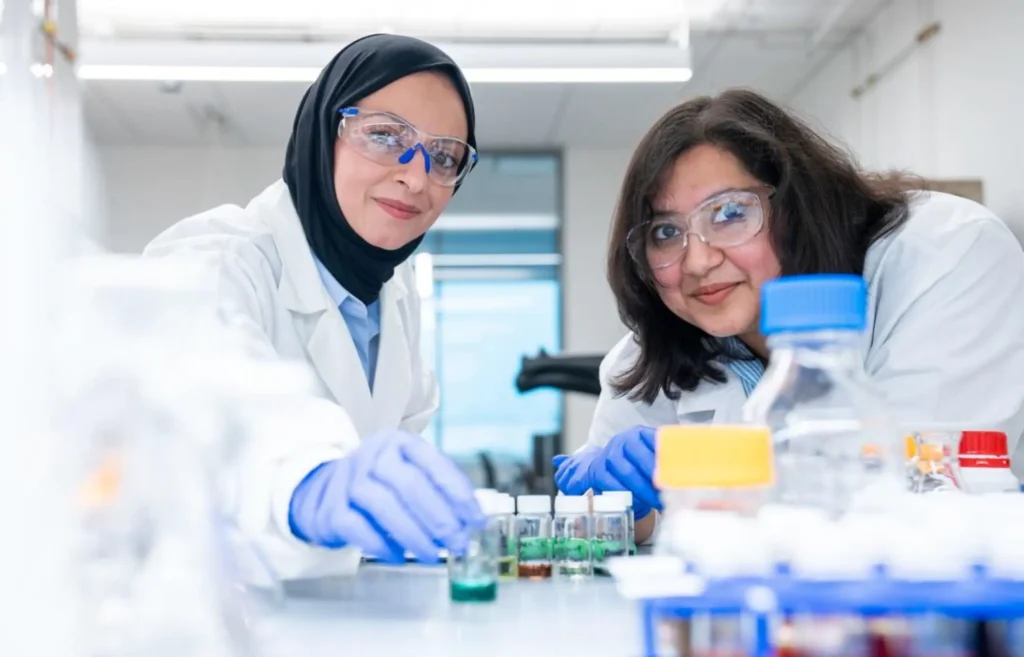
The global demand for lithium, a critical component in electric vehicle (EV) batteries, continues to soar. In response, researchers have developed an innovative method for lithium extraction that promises to enhance both the efficiency and sustainability of battery recycling. This breakthrough could significantly impact various sectors, including automotive, aviation, and energy.
Revolutionary Method for Lithium Extraction
A new study published in Advanced Functional Materials details a cutting-edge approach to lithium extraction from spent lithium-ion batteries (LIBs). Researchers at Rice University have introduced a method using microwave radiation and a biodegradable solvent, significantly improving the speed and efficiency of lithium recovery.
Using this novel technique, the team can retrieve up to 50% of lithium from spent LIB cathodes in just 30 seconds. This rapid and environmentally friendly process addresses the challenges of traditional recycling methods, which often involve harsh chemicals and energy-intensive procedures.
Sohini Bhattacharyya, one of the lead authors and a Rice Academy Postdoctoral Fellow, highlighted the importance of this development, explaining that with the colossal growth in LIB use, recycling spent LIBs to recover critical metals like lithium, cobalt, and nickel is essential.

Advantages Over Traditional Lithium Extraction Methods
Traditional lithium recycling methods are known for their inefficiencies and environmental drawbacks. They typically recover less than 5% of lithium due to contamination and complex extraction processes. In contrast, the new method developed by Rice University researchers leverages a deep eutectic solvent (DES) mixture of choline chloride and ethylene glycol to selectively target lithium.
Salma Alhashim, another lead author, explained that the goal was to target lithium specifically. By using a DES mixture, they can surround lithium with chloride ions and leach it into solution effectively.
The DES component, choline chloride, is particularly effective at absorbing microwaves, which allows for the rapid and selective leaching of lithium. This microwave-based process is akin to how a kitchen microwave quickly heats food, transferring energy directly to the molecules and accelerating the reaction.
Promising More Sustainable Battery Recycling
The efficiency of this new method is noteworthy. While traditional oil bath heating can take up to 12 hours to recover 87% of lithium, the microwave-based process achieves similar recovery rates in just 15 minutes. Additionally, the stability of the DES solvent during short heating cycles further enhances the process’s effectiveness.
Pulickel Ajayan, the study’s team lead and Rice’s Benjamin M. and Mary Greenwood Anderson Professor of Engineering, emphasised the environmental benefits, stating that this method not only enhances the recovery rate but also minimises environmental impact. It’s a promising step toward scalable, selective metal recovery using DES-based recycling systems.
Related: The Role of EV Battery Swapping to Accelerate e-Mobility
Implications for the EV Market
The global market for lithium-ion batteries, valued at over $65 billion in 2023, is poised for continued growth. This breakthrough in lithium extraction offers a sustainable solution to meet rising demand while addressing environmental concerns. As industries strive for greener and more efficient technologies, innovations like this are crucial.
As the market for lithium-ion batteries continues to grow, driven by advancements in electric mobility and energy storage solutions, innovations like this new extraction method are crucial. They provide a sustainable approach to meeting rising demand while addressing environmental concerns.
For more information on the global lithium-ion battery market and related topics, you can refer to sources such as Grand View Research and GlobeNewswire.
Final Thoughts from PRV Engineering
At PRV Engineering, we are continually monitoring advancements in the engineering and technology industries. As a leading provider of precision engineering services for various sectors, including aerospace and automotive, we understand the crucial role innovation plays in shaping our future.
We are excited to see how this new method for lithium extraction will impact the EV market and other industries that rely on battery technology. Stay updated with us by reading our blog and following us on social media. Together, let’s continue pushing the boundaries of what is possible through advancements in science and technology.


 Mail:
Mail: 



